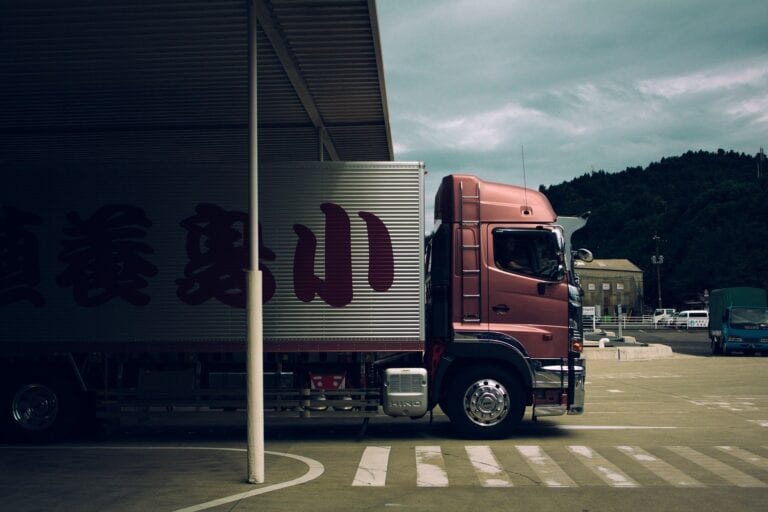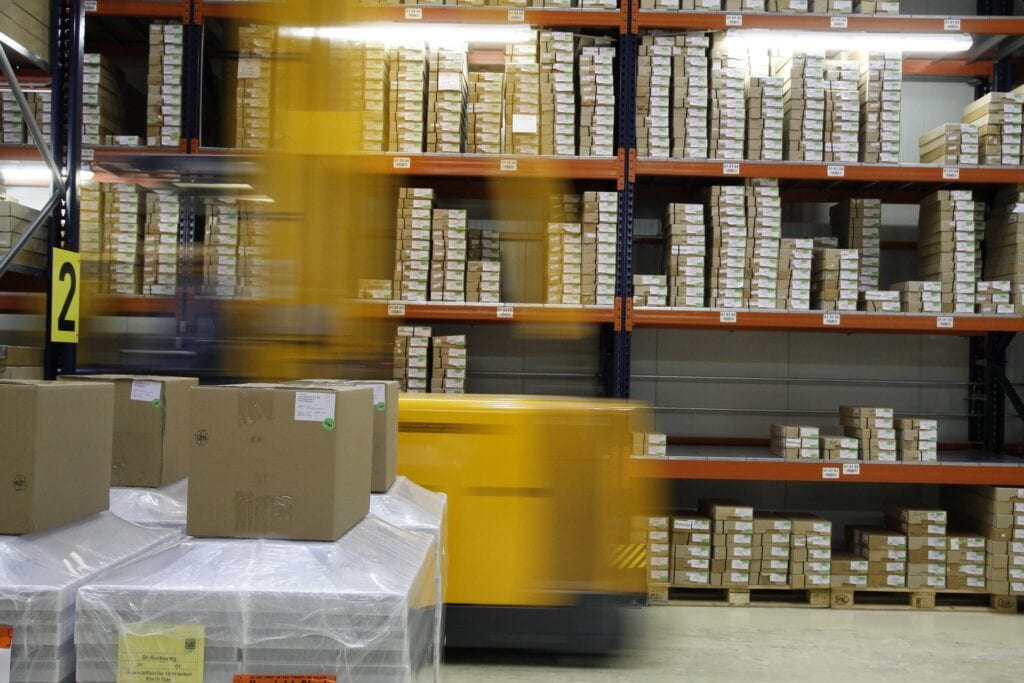Logistics is the process of planning, executing, and managing the reliable, effective flow and storage of goods, services, and related information between their points of origin and consumption. It refers to the coordination and movement of inventory from one place to another.
Companies in the manufacturing and distribution business need robust logistics solutions and a set framework that enables them to speed and improve delivery times to increase customer satisfaction. Companies are investing more and more time and money into streamlining their logistics because of its importance in the supply chain. Logistics can mean different things depending on the nature of the company’s work. A retailer might look at logistics as a mean of receiving and moving inventory with ease. In contrast, a machinery company may look at proper packaging and transportation of parts to factories for assembly.
5 Components of Logistics
Logistics is an umbrella term and a network of multiple processes that take one by one – or simultaneously – to accomplish set goals. Hence, one can break down logistics into different components for more accessible analysis and understanding of other processes. These components are –
1. Warehousing and Storage Management
One of the most important aspects to consider when starting a business is logistics and warehousing. A company must devote time, workforce, and money to create an optimum warehouse or storage facility that will house all materials necessary for their production process. Location can be just as crucial as size – it’s essential not only to have enough space but also easy access from major highways or roads so that customers can find your product with ease. Furthermore, you need employees who know how best to organise items on shelves according to thematic type: books should go together at one end while electronics may sit next door. All of it comes under warehousing and should be meticulous to ensure easy access during shipping.
2. Packaging
Logistics and packaging are things that should be on your mind when you create a product. An unprofessional look can make you appear too amateurish to customers. Still, the correct type of packaging could show off what’s inside in an attractive way while also giving it longevity for retail shelves or as gifts.
The logistics and package design process are crucial with any business from manufacturing companies to retail shops – having just one lousy component will lead consumers away if they feel like the company doesn’t care about their needs at all, so this information shouldn’t be overlooked. The packaging logistics for the company are of utmost importance to ensure high-level product consistency.
Many logistics operations put in numerous hours fine-tuning their carefully engineered shipping and handling procedures across each department, ensuring that every package is treated with care by workers who had gone through extensive training on how best to handle all different types of products. These training sessions are mandatory for new workers because they introduce uniformity in packaging across the board and ensure that a format is followed for every order to be stored or shipped.
3. Inventory
There are several essential things to remember when managing inventory. There is often a lot of waste which can result in low profitability and missed growth opportunities, so you must keep track of your product supply levels on an ongoing basis using the latest technology like RFID tagging or barcode scanning.
The proper use of inventory management techniques will help prevent any shortcomings from occurring with regards to shortages and overages because well-performing managers know how much they need at all times to meet customer demand as quickly as possible without having excess stock accumulating, which could cause unnecessary expenditures such as storage rental costs. In any logistics operation, inventory management can make all the difference in financial planning and ordering ahead of time to avoid losing potential customers in the future.
4. Transportation
Logistics are a vital factor when it comes to transportation. Whether you’re shipping packages or picking up and delivering goods, logistics play an integral role in the success of your company’s operations.
Transportation is all about getting from point A to point B as efficiently as possible while arriving at both locations intact with minimal damage along the way. And like any operation that relies heavily on supplies to get its work done, logistics play a big part in how well everything runs smoothly – whether we’re talking about freight forwarding services for international shipments or cross country deliveries by trucking companies domestically.
Transportation logistics is a long and drawn-out process. To ensure your goods are delivered on time, you need an experienced transportation company with the expertise required for all types of industries, including heavy freight shipping services that will be well equipped in tackling any obstacle they might face along their journey from point A to B without breaking down or harming anyone’s cargo. It may seem daunting at first, but finding the right partner can optimise the process and make it an easy one.
5. Information
Information logistics is critical to any business, and you must understand the best practices to avoid costly mistakes.
Enterprises are always looking for streamlining processes; they can do this with information management software (IMS). IMS allows them to centralise all sorts of data into a single location, so they don’t have as many issues managing different records systems or worrying about files getting lost somewhere between departments. It also makes it easier for employees because everything will be right at their fingertips without having multiple accounts and passwords.
The data logistics of a company are the set procedures and policies that help organise, sort, store, transmit information. They can range from how much to charge for shipping products worldwide or whether you should save email attachments on your work computer’s hard drive instead of sending them as an attachment in an email message. One example is determining where employees’ desks should be within proximity to their coworkers who might need assistance with tasks.

Difference between Logistics and Supply Chain
One of the most common misconceptions is that logistics and supply chain are identical and interchangeable terms. The truth is that they’re two entirely different things that are closely associated with each other.
Logistics is more about how transportation, packaging, and management happens with a company. For example, logistics includes the procurement of material from the supplier, shipping through the correct channels for processing. Once that’s done, the workers can then send the finished product to the distributors. All of the processes mentioned above come under logistics.
On the other hand, the supply chain refers to the sequence of events that interact to establish the final goal of delivering the product to the vendor and the customer. It includes customer support, shipment tracking, and warehousing near vendor locations to ensure faster delivery times.
Importance of Logistics
Companies are beginning to recognise that having a great product is not enough in today’s age. Every product has a competing product from a company at matching prices. Companies realise that they need to go above and beyond to ensure that they provide the most value to their consumers.
A company can provide value to a customer with a great delivery experience, proper packaging, and ease of problem resolution. Logistics come into play because they are the controlling factor in the handling and delivery of a product. Moreover, companies can stand to cut their losses with improved logistics management.
It is a known fact that companies suffer annual losses due to misplaced inventory, poor handling, and delivery measures. It is much cheaper to deliver the product with care rather than apologising to the customer and sending them a new product. Not only does it financially hurt the company, but it also discourages the consumer from endorsing the company’s brand again.
Hence, even though logistics is considered a back-end activity, it reflects in front of the consumers just as much as front-end marketing. Due to these factors, logistics has become an integral part of a company’s on-ground operations. Companies could improve their brand image, cut losses, optimise warehouses, even reduce employee workload if they started to improve their logistics.
Technological advancement in logistics
Logistics is a field that has seen rapid technological growth in recent years, which can be attributed to the advent of smartphone apps. One such technology change includes sophisticated tracking software for freight trucks.
In addition to new and innovative technologies like these, there have been many advancements made in how we stay connected with our customers via social media platforms such as Twitter and Facebook- this makes it easier than ever before to receive feedback from clients about their experience when they are using your company’s services or products.
Technologies like RFID tags and barcodes have revolutionised the supply chain in modern business. A variety of advances has been seen over the decades. Still, it wasn’t until just a few years ago that we’ve seen significant progress with technology such as Radio Frequency Identification (RFID) tagging and 2D Barcode scanning.
These technologies allow companies to track goods from their point of origin through every step of production until they reach retail shelves or are delivered straight to customers’ homes – all without human interaction! It is advantageous due to its precision. A business can even document product histories should there ever be any questions about an item’s origins. It can even help businesses have a record of handling procedures that were executed according to company policies.
Related posts
- The Ultimate Guide On Third-Party Logistics (3PL)
- List Of 11 Best Logistics Companies In India
- 6 Effective Ways To Grow Your Logistics Business
- The Complete Guide On Fourth Party Logistics (4PL)
- Logistics Market In India
- 10 Biggest Challenges Faced By Logistics Companies
- What Is Transportation Management System?
- 10 Key Benefits Of Transportation Management System (TMS)
- 10 Practical Tips To Reduce Warehouse Costs
- 6 Common Types Of Bill Of Lading (BOL)
- Business Intelligence Solution for Intralogistics
- Top 10 Logistics Trends To Look Out In 2024
- How To Start Logistics Business In India
